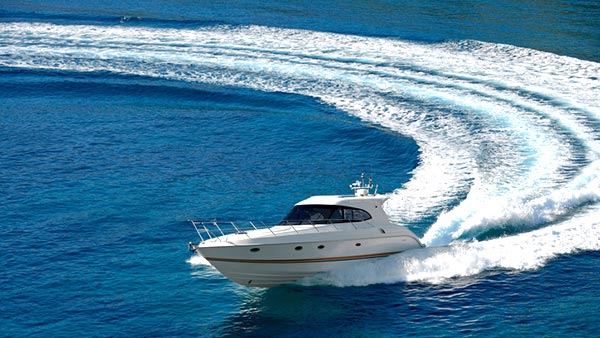
Attention to safety will assure a pleasant time on the waterways.
Each time you set out on the lakes and waterways with your boat, take time to review some basic safety tips.
First, make sure everyone who drives your boat knows the basic rules about right of way, speed limits, ski restrictions and equipment condition.
Improve operating skills by completing a course. Contact the department of natural resources in your state to find boating classes, or contact the U.S. Coast Guard Auxiliary or Power Squadron. For information about vessel safety and other boating resources, visit the Coast Guard’s Boating Safety Resource Center
Keep in mind:
- Half of all personal watercraft accidents involve operators with less than 20 hours of experience. Thirty-five percent involve riders under age 21.
- Follow all U.S. Coast Guard regulations for life jackets and safety equipment.
- Keep enough air pressure in trailer tires. Low pressure at high speeds causes accidents.
- Be sure your drain plugs are installed. Many boaters have launched the craft from a trailer with the drains open.
- Periodically recheck the motor bracket clamps for firmness. A safety chain secured to the boat can keep the motor from falling entirely into the water.
- Open the hatch or operate the blower before starting an inboard engine. Gasoline fumes are dangerous.
- Guard against theft; don’t leave your boat, motor or equipment unattended. Take equipment not permanently attached or locked away with you when leaving the boat.
- Keep firefighting and lifesaving equipment in good condition. This equipment should be readily available. The first few seconds are the most important.
- Use an electric engraver to label your equipment.
- Before leaving your boat, be certain stoves, lights or lanterns and switches are turned off and cigarettes extinguished. And remember—no smoking while fueling.
- Lock your boat onto its trailer and secure the trailer to a fixed object when it is not attached to a vehicle.
- Tow skiers in open areas away from congested areas, narrow or winding channels or near docks, buoys or floats.
- Use a wide angle rearview mirror and a second person to act as a lookout when towing a skier.
- Stop the motor before taking a skier on board.
And before you set out, check with your local, independent insurance agent to make sure you have the property and liability insurance protection you need.
This loss control information is advisory only. The author assumes no responsibility for management or control of loss control activities. Not all exposures are identified in this article.
